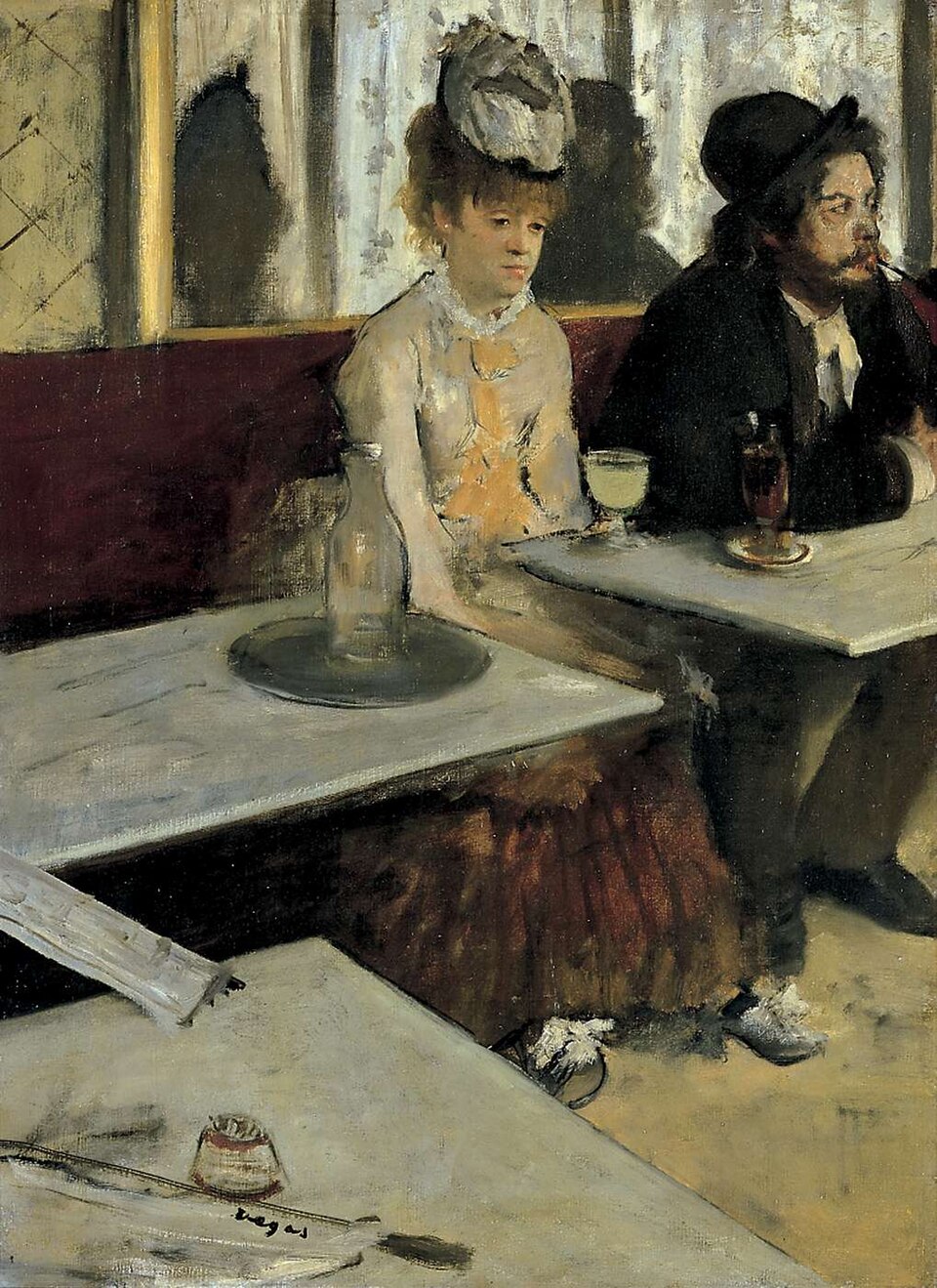Two gazes lost in the void. Not in cell phones. Not on the street. Not even in daydreams, that place full of conscious distraction. Lost in a void that has substance and alters the surrounding reality. Let’s get to the point: the café tables float. There are no legs. Once you notice this, the whole world floats and nothing is the same as before. It reminds me of Linklater’s film Waking Life, in which color cannot stay contained within the protagonists. In one scene, the protagonist cannot anchor himself to this world, clinging on so as not to fly away himself. Here, in this painting, the outlines are still there, everything perhaps appears more solid—but only up to a certain point. Beyond the vision, things might disappear at any moment. The gaze outside the world and the errors of reality (the table legs) place the couple outside of belonging to things. This Paris is both loved and contested; what emerges is not a polite line. If Manet had already explained well enough that beneath the city something was boiling, now this magmatic plunge into the real city, the evil twin of the one shown to the world, has become a point of no return. There is no Venus rising from the waters, nor can there ever be again. Paris is not an Arcadia, and its pictorial representation is solitude. Perhaps it is a matter of speed, a theme that now, associated with carriages, might make us smile, but at the time was perceived as radical, a new speed, almost instantaneous; speed as intoxication, a place of encounter and perdition, of solitude in the midst of people. What happens? Can we not speak? Is it unnecessary? What is necessary is production, consumption, to numb ourselves, to dull ourselves.
In a scene from Sid and Nancy, the policeman says, more or less: “Do you know why we let heroin in? Because that way there will never be any damned revolution.” And yet no, not exactly that either—not control, not punk revolt is at the center of this painting. And perhaps not even Aronofsky, in that desperate tangle toward hell that is Requiem for a Dream, lets us look closely, with the right distance. This discourse, instead, is more delicate and less dramatic. On one side, less denunciation and more observation; on the other, more existential and intimate. This is not a moral discourse, though from certain angles it is, but it is definitively a gaze upon absence. Waking Life is a good reference, since it is about uncertainty, about the doubt of being alive, about floating itself. Perhaps numbed by this speed, by these opportunities, we float into a self-destruction that is less protest than outcome, almost algebraic. The false genre painting that depicted us as good and pure, descendants of a great era, is now dead. Everything is wrapped in the vision of a stolen, lost, clouded instant. The sensibility of A Season in Hell peeks through. Rimbaud has returned from his readings of Goethe and Shakespeare, ready for the Season. Rimbaud is a place (and book) of no return, necessary in order to abandon writing. Words themselves are the weapon with which we write our way out, but also the cage broken only by life.


